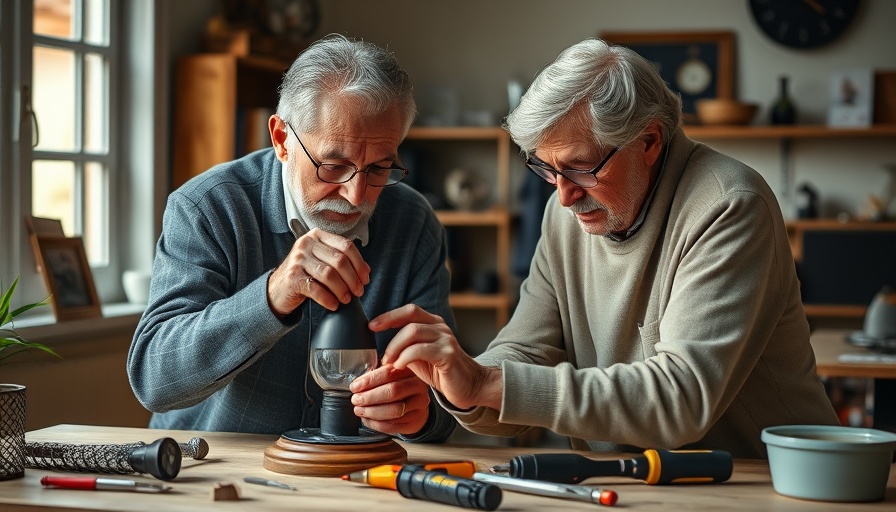
Reviving the Lost Art of Repair: A Growing Movement
In an age where consumerism often leads to disposability, many individuals are challenging the status quo by opting to repair rather than replace. For seniors, this shift not only offers a means of saving money but also strengthens community bonds, helping them connect creatively and socially. Initiatives like Fix-It Nights at communities like Westbeth in Manhattan bring together volunteers and residents to mend items, learn new skills, and foster collaboration.
Why Repair Cafes Matter to Seniors
Repair Cafes have become a beacon for empowerment among the elderly. As noted by Suzie Fromer, a coordinator in New York’s Hudson Valley, many senior volunteers possess both the time and expertise to assist others in fixing broken items. These cafes not only serve to keep products out of landfills, but they also cultivate a setting where seniors feel valued for their knowledge and skills—from fixing broken lamps to restoring vintage chairs.
Bridging Generations Through Craft
The revival of repair culture is proving to be beneficial across generations. As Wayne Seltzer, a retired engineer, shares insights from the Boulder U-Fix-It Clinic, seniors who grew up in the environmental movements of the '60s are keen to contribute to sustainability simply by passing on their knowledge. Knowing how to repair common household items is not just about practicality; it provides meaningful experiences and memories that create lasting connections.
The Financial Benefits of Repair
With rising costs of living, many seniors are faced with the tough reality of budgeting wisely. Repairing instead of replacing can significantly save money, making these events more appealing than ever. In addition to the environmental impact, there is a tangible cost-effectiveness to this practice that resonates deeply in the current economic climate.
What’s Next for the Repair Movement?
The future of repair initiatives looks promising. With the support from local communities and organizations dedicated to environmental sustainability and frugality, these repair events can flourish. Communities can expand their offerings, introducing workshops and skill-sharing sessions that empower seniors and younger generations alike.
By choosing repair over replacement, seniors not only contribute to sustainable practices but also enhance their mental and social well-being. They find purpose, foster community, and celebrate creativity in the process. As we navigate through a world increasingly geared towards consumption, perhaps it’s the act of fixing—both objects and relationships—that will shape our communities moving forward.
Seize Your Fixing Potential! If you're interested in participating in a local Repair Café or starting your own, now is the time. Gather your items that need fixing, rally your friends, and seek out resources in your community. Let's empower each other to revive the art of repair!
 Add Row
Add Row  Add
Add 




Write A Comment